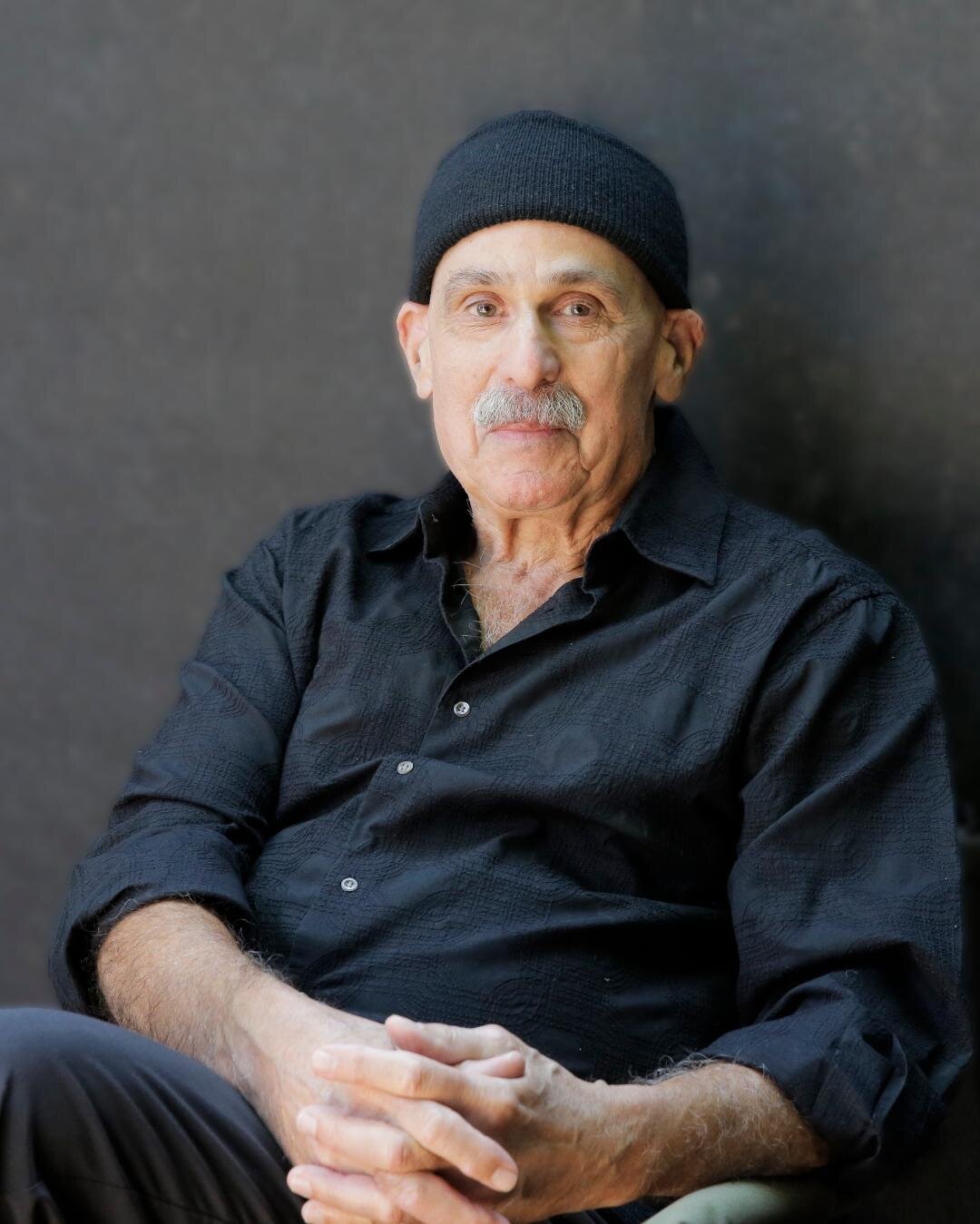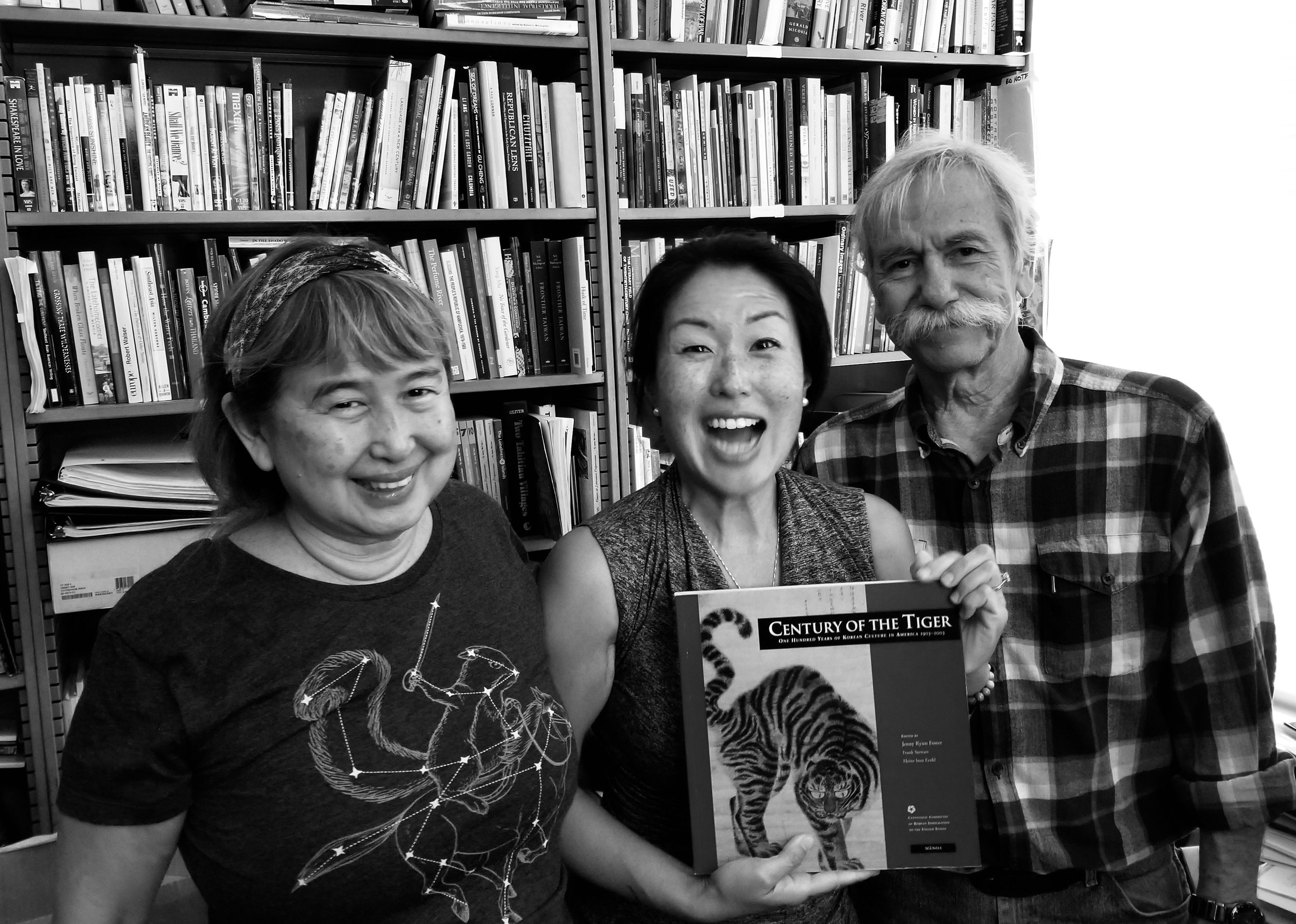An Office in the Ocean

While Thomas Farber has been dividing his time between Hawai‘i, Boston, and the Bay Area for the last 40-plus years, his life can seem more aquatic than terrestrial. I saw him for years in black swim cap and goggles before we ever exchanged a word, gradually merging the man in the Tongg’s swimming channel with the guy behind the gorgeously written and intellectually immersive The Face of the Deep, followed by On Water and Through a Liquid Mirror—my favorites of his 27 books. The latter is a collaborative venture featuring striking underwater photography by lifetime collaborator Wayne Levin, whose work also adorns Acting My Age, Farber’s new book; both include Levin’s totemic photos of famed North Shore lifeguard, bodysurfer, and artist Mark Cunningham diving beneath cloud-like boils from a breaking wave—a style of photography so imitated that it’s gone mainstream. Acting My Age also includes photos by Geoffrey Fricker, whose work on Maui is also showcased. Acting My Age is published by Mānoa: A Pacific Journal of International Writing (University of Hawai‘i Press). This interview took place in Honolulu, Hawai‘i, in summer 2021. —D.W.
Need, Compulsion, and a Kind of Exuberance:
An Interview with Thomas Farber
Pat Matsueda
The Lord Byron quotation, “I would have saved them if I could” has great significance for you. Can you describe what it means to you and how it manifests in Acting My Age?
Tom Farber
These eight words were the title of a book by Leonard Michaels. He was quoting something bad-boy poet Lord Byron (1788–1824) wrote while witnessing a public hanging. “I would have saved them if I could.” A great title, I thought, when I read Michaels’ book at age thirty. Later, turning forty, it often came to mind as my siblings and I tried to care for my mother during her terminal illness. Things kept going wrong. We could not save her. Did not save her.
These days, at age seventy-seven, Lord Byron’s eight words seem ever more germane. Close friends in trouble—health, money. The unexpected; the incurable. What people cannot be spared. In part, Acting My Age speaks both to my own older age and to the jeopardies of those who, in poet Wallace Stevens’ rendering, “completely” touch us “in the stale grandeur of annihilation.”
Pat
The chapter on Donald Trump is very political and very funny. Can you tell us about your interest in politics—when it started and what events shaped it?
Tom
I’m a child of the 1960s, an era which bred mistrust of government. Johnson, Kissinger, McNamara, Nixon: endless lies about the American war in Vietnam. “We won’t be fooled again,” The Who sang, meaning we would continue to be lied to. George W. Bush and Dick Cheney, among others, continued such a tradition of presidential mania, duplicity.
Weighing how to describe Trump’s presence in the years Acting My Age addresses—2015–2020—I envisioned #45 soon to meet his Heavenly Maker. Not that I wish him any particular ill. Nonetheless, even Trump will inevitably confront the Great Beyond. This despite his fawning cohort of the professionally religious. In my vision, at such a penultimate—come-to-Jesus—moment, Trump would be without lackeys/ television/smartphone/American flag lapel pin. No more “self-refuting boasts,” as George Will put it. And because Trump seemed to me unusually denatured, a peculiarly forlorn creature of the virtual, in my vision he’s alone on the shore, at the edge of the very big screen. A beach in Hawai‘i. The Pacific ocean. Confronting what Dan Duane termed “the inhuman vast.”
Pat
Acting My Age is like a symphony in its careful modulation of moods. The ending is especially powerful—not because it is dramatic but because it is tender and wise. Can you share some of the responses you've gotten from people?
Tom
God help me, there are at least four endings! Talk about trying to stave off finishing a book! I must have liked being the manuscript’s only reader! But about those four endings…
“Moloka‘i” describes a time of physical discomfort when I was bedridden, “drowning in a puddle” rather than in the ocean. Melville’s Ahab came to mind as when, late in Moby Dick, he tells first mate Starbuck that “Some men die at the ebb tide; some at low water; some at the full of the flood—and I feel now like a billow that’s all one crested comb…” In my own grim mood, I was imagining swimming from O‘ahu to Moloka‘i, 35 miles or so, but of course I wouldn’t make it.
Acting My Age could have ended there. Not at peace with that, however, I composed “Last Writes,” describing yet another moment on the small beach it has for years amused me to call my church and office. “Night / fall, blue becoming black. Stars coming out, as Derek Walcott put it, ‘to watch the evening die.’”
The book could have ended there, but in my “Epilogue,” I was thinking of Geoffrey Chaucer, who professed to revoke / abjure / eschew / recant what he’d written. Not, however, my frame of mind: like J.A. Baker in his masterwork The Peregrine, I needed to say I’d tried to describe “a dying world, like Mars, but glowing still.”
As a friend teased, that really should have been that, but I was arguing that of course I was reluctant to give up this book. For five years it had been my “daily craft pursuit; house being constructed; mania; self-directed home-schooling; and word music being composed. Also self-sentenced ‘hard labor.’ Also life raft. Also, arguably, spiritual practice.”
Hence, at long last, my “Postscript.” Closing the book as I’d had it open, with the pandemic, which began in 2020 as I did final revisions. In the “Author’s Note,” which had begun my manuscript, I wrote that “some of my writerly obsessions the five years before epi became pan may shed light on the madness that ensued.” And so my “Postscript” concluded: “Town stiller than still. Deathly quiet. And those who have a home? Sheltered in place. Home / bound. Waiting to learn who the virus took, spared.”
Pat
You’re Publisher and Editor-in-Chief of El León Literary Arts. How did it get started?
Tom
Twenty years since 2001, without quite intending to, we’re about to publish our fortieth book. Who knew?
Since the 1980s, I’d been reading about truth commissions. Story, reconciliation, social justice. South Africa after the end of apartheid, for example. As a frequent and often long-term visitor in Hawai‘i, an informed outsider, I thought of retelling a true Hawai‘i story for public discussion. Schools, churches, and civic groups would participate. My goal was to give a human face to the 1893 overthrow of the Kingdom by American businessmen. The story I intended to see retold was Pi‘ilani’s narrative about her husband Ko‘olau and their son during their time in the wilderness. From which only Pi‘ilani emerged alive. My hope was to have talented Native Hawaiian author/editor Mahealani Dudoit (1954–2002) do a new translation of Pi‘ilani’s harrowing and moving account. I’d contribute a companion essay about the overthrow. Asking foundations to support this project, however, I had no luck, but one did ask me what else I had in mind. I explained I’d been thinking about starting an independent noncommercial publishing venture. And so El León Literary Arts, office in the study in my cottage, began.
“Circling Akule”
Kealakekua Bay, Hawai‘i, 2000.
Photograph by Wayne Levin
Pat
You published Dr. Lawrence Levin's book, Poems and Essays from an Ordinary Room, after Levin passed away in early 2014. Please tell us about this project.
Tom
Since 1990, I’d been blessed with a great friendship and artistic collaboration with photographer Wayne Levin. When Wayne’s brother, physician Larry Levin, was struggling with health issues, Larry’s father, Mel, asked if I’d read some things Larry had written about his plight. I was much impressed and moved, and encouraged Larry to show me more. His book emerged from those exchanges. As you know, Pat, because you both designed the cover of the book and helped prepare the manuscript for publication, Larry died just before we had the finished book in hand. Heartbreaking…
Pat
In a conversation I had with you, you mentioned that El Leon was being approached by well-known authors to publish their books. How did that come about?
Tom
When El Leon took on the manuscript of Karl Marlantes’ novel Matterhorn, he’d been trying for years—ten years?—to find an agent or editor. Long since, there was no commercial interest in the Vietnam War. After Managing Editor Kit Duane’s skilled extensive editing work with Karl, we hoped Matterhorn might eventually sell out our printing of 1,000 copies. Sic independent press publishing!
Our copies, with a beautiful cover by Andrea Young, were in the warehouse just before pub date. When Grove/Atlantic heard about the book, Publisher Morgan Entrekin flew out from New York to urge me not to release it, to instead do a joint edition with Grove/Atlantic. Widely reviewed and praised, this Matterhorn put El León, our tiny cottage industry, on the map for literary agents.
Similarly, my former student Shawna Yang Ryan’s powerful first novel, Locke, 1928 (with another beautiful cover by Andrea Young), was—miraculously!—picked up by Penguin. (They retitled it Water Ghosts. Not what I would have done: we published Shawna’s book with the title she’d chosen.)
It had never been my thought to do more than publish books I valued and to hope for the best. It did not occur to me to conflate “artistic merit” and “commercial success.” But sometimes, sometimes the mainstream book business has confirmed our choices. Made use of them.
Pat
You write about your mother in Acting My Age.
Tom
Re “Mom.” Norma Farber (1909–1984). Singer, actress, author; wife, mother, grandmother, widow. “Mother” always, actually. From whom, not surprisingly, came my…mother tongue. Over time, this poet-parent-author of more than thirty books and her writer-son had much to share. Who else, for instance, urged on me J.A. Baker’s extraordinary The Peregrine? Or made notes on 3-x-5 cards: sentences from books she was reading; words to look up to find their etymologies? In this regard, like mother/like son. Fortunately, she was a poet (albeit with a late-in-life novella). When I was a young prose writer, it seemed to me she was in an entirely different line of work. No competing necessary…But always there was deep shared interest in words and story.
It also gave me great pleasure to help my mother place some of her books with New York publishers. She refused to have a literary agent; I did what I could. One of these was her marvelous book for “children of all ages,” As I Was Crossing Boston Common, illustrations by the masterful Arnold Lobel.
Pat
You turned seventy-seven shortly after Acting My Age was published early in 2021. You’ve written more than twenty-five books and chapbooks. Is Acting My Age going to be your last one? Was it your last one?
Tom
Good question! My answer? Yes. No. Maybe.
Hard to imagine not writing. Though at the moment, blessed to be spending time in or by this warm ocean, on shore with my eyes on the horizon, or in deep hanging out with the goatfish, it’s also hard to imagine starting another book. Busy, overwhelmed by, just taking in, being in, the world-as-it-is.
As for when writing stops, I think of my great friend Chester Aaron (1923–2019). Author, grower of ninety kinds of garlic, war combat veteran, inveterate and buoyant storyteller. Chester often said that without writing he would have jumped off a bridge. In his nineties, bodily attritions of even such a vital man kept accumulating. We tend to think of authors as the makers of stories. But maybe Story itself has agency. After seven decades of Chester’s life as published writer, saving Chester from jumping off a bridge, maybe Story concluded it was time to move along.
When my mother was dying, I read her a poem she’d written that had just come out in a literary journal. Asked what she thought of it. “My poems aren’t helping me here,” my mother replied. She was calm—deathly calm—as she spoke, as if nothing could be more obvious. More matter of fact.
So, about yours truly and more books or not. Yes. No. Maybe.
Pat
In Acting My Age, you speak of “the death of the ocean,” adding that you might be overstating it.
Tom
Yes. The risk of overstatement. Still, overconsumption, chemical poisoning, and extermination of much of life in the ocean is what our remarkable species is up to. And we know it. Things don’t go extinct all on their own these days. Nonetheless, in the longer run the ocean will of course outlive us until, like our sun, it dies.
One hazard for “nature lovers” is misanthropy. I think of twentieth-century poet Robinson Jeffers, famous in his day. He lived for decades on the California coast above Carmel Bay. As Robert Hass put it, Jeffers felt “for all the life outside of and imperiled by the rapacity and unconsciousness of human usurpation of the planet.” Jeffers’ neologism “Inhumanism” argued against seeing humans as the center of life on Earth. A line of thought that could make one less than sympathetic to human concerns.
The other day, in Honolulu’s Kapi‘olani Park in the late afternoon, there were very small children playing soccer. Incredibly deft, high energy, full of laughter. Good for this particular “nature lover” to keep such manifestations of the human in mind.
Pat
You say you’ve been spending this summer rereading all your books. What’s that about?
Tom
As Bernard Malamud replied when asked what writing had meant to him, “I’d be too moved to say.”
I’m tempted to leave it there!
But…I have been rereading. The line editor in me wouldn’t mind trimming sentences in earlier work, particularly things I wrote forty or fifty years ago. Over time, I learned how to move more quickly in prose. More succinctly. But I won’t be rewriting my books, though novelist John Fowles did with his bestseller The Magus. As did poets like Robert Lowell and W.H. Auden. Overall, I can see I gave my best in each book, wrote from need, compulsion, and a kind of exuberance. Without regard for categories of the marketplace.
I would like to say that now, having almost finished rereading my books, I can hold them all in my mind at the same time, every bit of them. I think I must have begun with that misapprehension. But I seem to lack the requisite mental megabytes. Like life, which actually cannot be relived just as it was lived, books, though rereadable, have their own fate. And, even for the author, go their own way. Have their own life cycle. Not, like the author, aging/aging/aging from the moment they’re born, but, once complete, forever as they were. Kinda immortal, you might even say.
Awarded Guggenheim and, three times, National Endowment fellowships for fiction and creative nonfiction, Thomas Farber has been a Fulbright Scholar, recipient of the Dorothea Lange-Paul Taylor Prize, and Rockefeller Foundation scholar at Bellagio. His recent books include Here And Gone, The End of My Wits, Brief Nudity, and The Beholder. Former Visiting Distinguished Writer at the University of Hawai‘i, he teaches at the University of California, Berkeley, and is Publisher/Editor-in-Chief of El León Literary Arts.
Wayne Levin received his BFA from the San Francisco Art Institute and his MFA from Pratt Institute in New York. His books and monographs include Kalaupapa: A Portrait (1989), Through a Liquid Mirror (1998), Other Oceans (2001), Akule (2010), Ili Nā Ho‘omana‘o o Kalaupapa (2012), and Flowing (2014). Levin’s photographs were also included in Kaho‘olawe: Nā Leo o Kanaloa (1996) and in such publications as Aperture, American Photographer, Camera Arts, and LensWork. He has exhibited widely in the U.S. and abroad.
Farber portrait by Andrea Young.
Pat Matsueda is managing editor of Mānoa: A Pacific Journal of International Writing (University of Hawai‘i Press). She is the author of Bedeviled and Stray and founded the series Ms. Aligned: Women Writing About Men.







